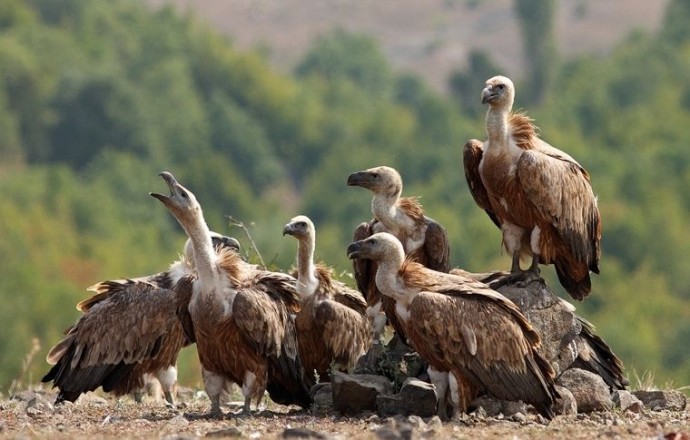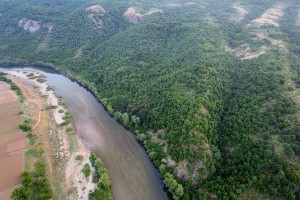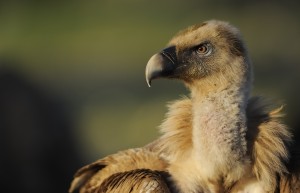This March the first griffon vulture chick hatched in the Studen Kladenets Natura 2000 site, located in the core of the Rhodope Mountains rewilding area. With spring in full rise, more chicks will hatch in the coming weeks continuing the positive trend in the griffon vulture population in Bulgaria.

This year vulture experts and the rewilding team in the Rhodope Mountains counted 75 griffon vulture pairs within the regular monitoring programme of this only indigenous griffon vulture population in Bulgaria. In mid-February 2016, experts from the Bulgarian Society for the Protection of Birds (BSPB) visited all griffon vulture nesting sites in the eastern part of the Rhodopes Mountains. The monitoring results showed that 35 pairs are occupying Madzharovo and 42 pairs Studen Kladenets sites, both priority areas in our initiative. From 75 registered territorial pairs 58 were at incubation stage and the rest are in the process of nest building. Most of the identified pairs consist of adult birds. The highest density of 19 pairs nesting on single large cliff formations was found near Madzharovo.
Exactly the same number of 75 pairs was counted in 2015 which was then marked as a record number of griffon vulture pairs. During the 2016 census two additional pairs were found so thanks to the continuous vulture conservation efforts, there is a slightly positive trend in griffon vulture population in the area.

The griffon vulture was a numerous and widespread species in Bulgaria in the beginning of the 20th century. However, within a short period of only some decades until the middle of the century, the species became almost extinct across its whole range. This was mainly due to poisoning and deliberate persecution. Between 1960 and 1970 the last known breeding colonies of griffon vultures disappeared and some authors considered the species to be extinct in Bulgaria.
In 1978, in the Eastern Rhodopes one breeding pair was found in the region of Studen Kladenets, and in 1986 a new Griffon vulture colony was discovered near the town of Madzharovo, consisting of about 20 birds and three nesting pairs. After the discovery the first direct conservation activities for the last vultures in Bulgaria began – monitoring, artificial feeding and work with local communities. The breeding population of griffon vultures in Eastern Rhodopes increased gradually from about 10 pairs in 1990s to 70 in 2014 after several conservation projects done by BSPB/BirdLife. Despite the positive trend, the sustainability of the population is still uncertain and fragile and requires more conservation efforts in the area.

The new LIFE project “Conservation of Black and Griffon vultures in the cross-border Rhodope Mountains” which started in January this year, will further contribute to the conservation of the only native griffon vulture population in Bulgaria and the few remaining breeding pairs in Greece.
The project focuses on the recovery and further expansion of the black and griffon vulture populations in this part of the Balkan region, mainly by improving natural prey availability and reducing mortality factors such as poaching, poisoning and impact of power lines.
The LIFE Vultures project was developed by Rewilding Europe in partnership with Rewilding Rhodopes Foundation, Bulgarian Society for the Protection of Birds/Birdlife Bulgaria, WWF Greece, Vulture Conservation Foundation and Hellenic Ornithological Society/BirdLife Greece, and is funded by the European Commission and Fondation Segré.
